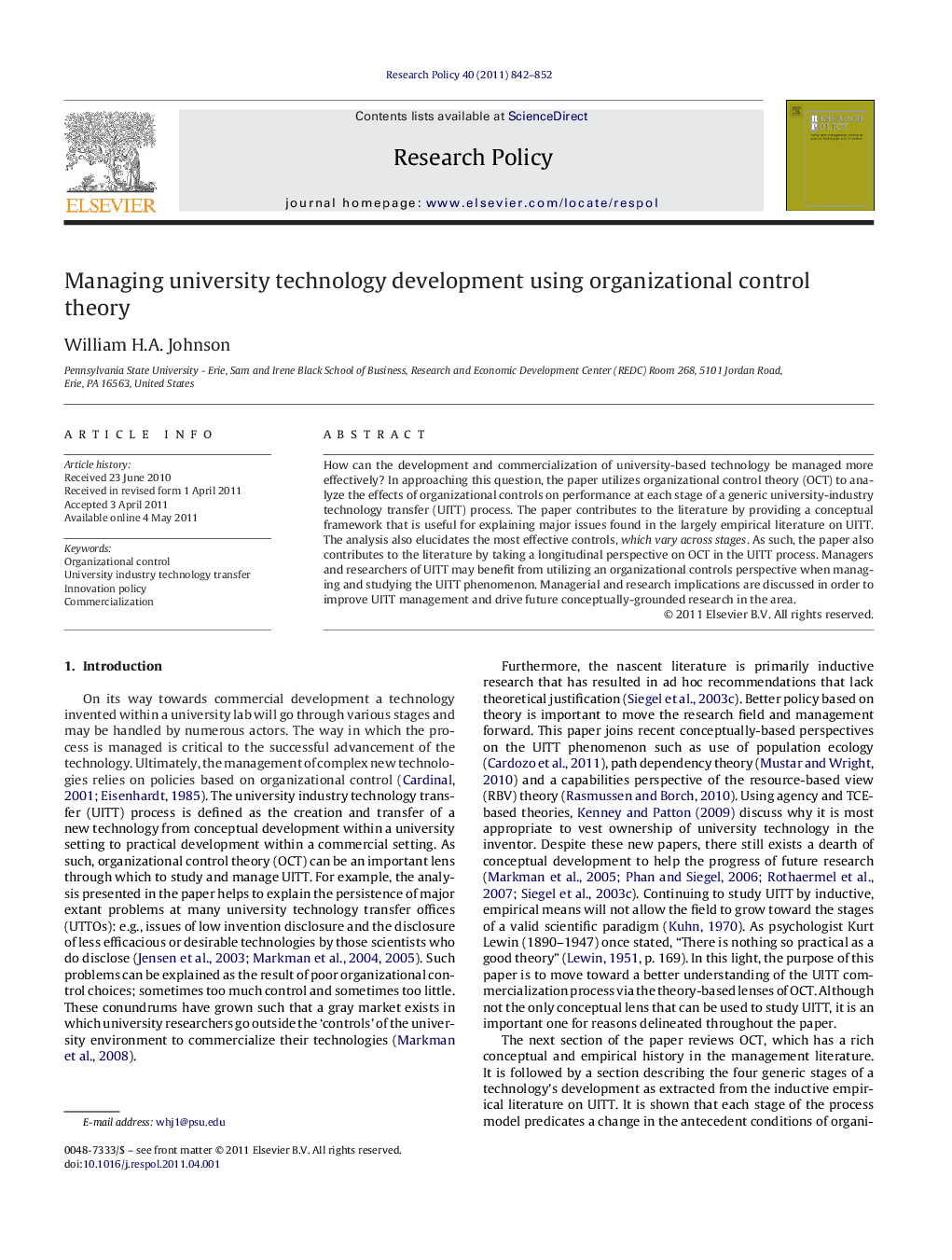| Article ID | Journal | Published Year | Pages | File Type |
|---|---|---|---|---|
| 985238 | Research Policy | 2011 | 11 Pages |
How can the development and commercialization of university-based technology be managed more effectively? In approaching this question, the paper utilizes organizational control theory (OCT) to analyze the effects of organizational controls on performance at each stage of a generic university-industry technology transfer (UITT) process. The paper contributes to the literature by providing a conceptual framework that is useful for explaining major issues found in the largely empirical literature on UITT. The analysis also elucidates the most effective controls, which vary across stages. As such, the paper also contributes to the literature by taking a longitudinal perspective on OCT in the UITT process. Managers and researchers of UITT may benefit from utilizing an organizational controls perspective when managing and studying the UITT phenomenon. Managerial and research implications are discussed in order to improve UITT management and drive future conceptually-grounded research in the area.
► The most effective organizational controls change over time as the environment of technological development changes during each stage of the UITT process. ► Early stages require focus on Input controls. ► Middle stages are more balanced with regard to effective controls – utilizing a combination of Input, Behavior and Output controls – with the emphasis depending on the individual circumstance of technological development. ► Latter stages, closer to commercialization, require more emphasis on Output controls.
